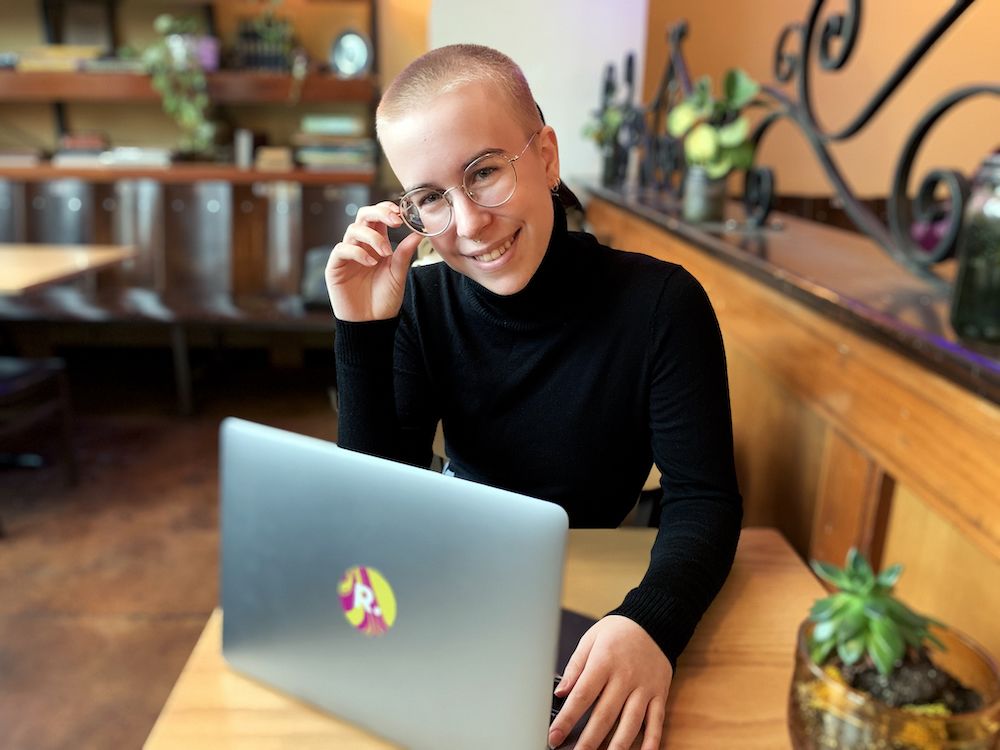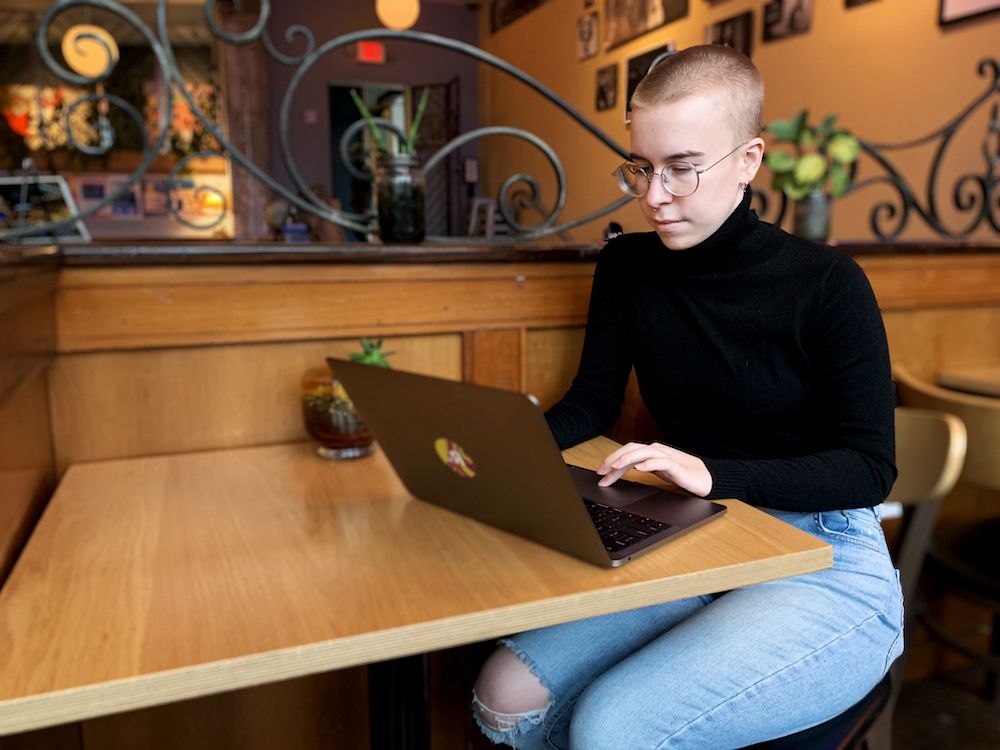Go Back
Are you dying to know what it takes to be a data-driven designer at Roboboogie? Look no further! This month we’re chatting with Strategic Design Intern, August Wanner, the newest addition to our killer design team. August plays a huge role in our creative process, from design innovation to creative problem solving. Read on to get their thoughts on data-backed design, UX trends, and their approach to solving problems.

How do you describe what you do?
I support the design team in identifying and improving clients’ user interaction experience across websites and apps, in addition to creating graphics for Roboboogie’s social media, office, and website. As an intern, I don’t actually spend my time getting coffee for everyone (but I wouldn’t mind doing that, either.)
What are the most satisfying parts of your role?
It’s amazing to see a project all the way through from conception to execution! Even if it went in a different direction than I expected, it’s so satisfying to know that we put our brains together to create something that can bring joy, ease of use, or connection to the users and clients.
What did you want to be when you grew up? Did you always want to be a designer?
When I was a kid I wanted to be the person who paints promotional illustrations on store windows, which when I think about it is pretty similar to graphic design! I never thought I could actually make it as an artist even though I spent all my free time drawing, so I spent a few years in the middle thinking about going into music education—another form of creativity that challenged me in a way I loved.
But once I learned how to use Photoshop in high school, it was all downhill from there. I took a Graphic Communications class and would finish assignments a week early to work on my personal passion projects, then after school I’d come home and spend a couple more hours on them. I remember thinking to myself, “If I could just work on projects in Photoshop for 8 hours a day and get paid for it, I wouldn’t want anything else.”
What is a skillset that you use every day, but never thought you would have to?
Speaking skills. I used to think that if your project was any good it would speak for itself, but being able to effectively communicate the complex ideas behind any decisions I’ve made is really valuable. Once I stopped presenting my projects with phrases like “I don’t know,” or “So yeah, here it is,” and started owning my design with confidence, I noticed that others were more responsive and I came across capable and in control, even if I didn’t really feel like I was.

How do you approach solving problems?
I break down the larger picture into chunks, and continue breaking those down until I have a list of chronological tasks I can get done in order to complete the main goal. It makes the whole problem seem a lot more approachable when all the bite-sized pieces are neatly organized in my mind, and that organization also makes it a lot easier for me to get a good estimate of how long the project might take. Fun fact: my sketchbook has more lists than actual sketches in it.
What are your favorite online resources (news, blogs, tools) and why?
I read a lot of Medium articles about accessibility, UX/UI, web trends, and design thinking. For general design inspiration I love Muzli. Even if I’m reading about a technique or concept I’m already familiar with, it’s great to get refreshed a little, or just take a look at what other designers are creating outside of my sphere.
What user experience trends or tools are you currently most excited about?
For years now I’ve been wishing I could collaborate on a design project with someone else at the same time, like Google Docs, so I’m really excited that Adobe XD has started supporting coediting! I’m so ready to leave “File_AugustUpdates_R3.xd” behind.
What is some advice you would have for someone who is new to letting data drive their design process?
Discard any preconceived ideas you’re bringing to the project that don’t have the context of specific data points behind them. Those ideas, while they might be exciting and innovative, will just end up stretching and warping until they fit the data, ultimately rendering them unrecognizable and ineffective. Starting with the data and working from there means that the design can be more intentional and ultimately more effective.

Why should people care about good design?
Why should people care about good music, or good art, or good books? Good design makes our lives a little bit better and brighter. Design is all around us, in every product we use and everywhere we look. Good design takes those everyday items, websites, apps, and turns them into something extraordinary.
Thanks for giving us a glimpse into your brain, August! Stay tuned for more interviews with the Roboboogie team & optimization experts coming soon.


